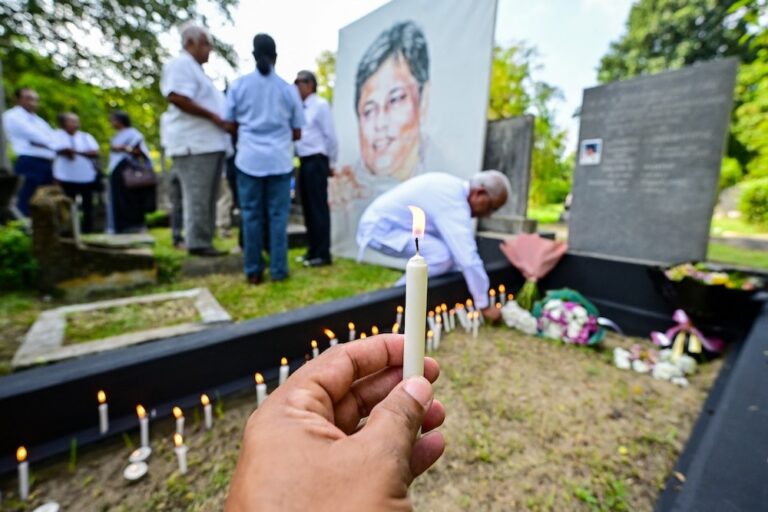(FMM/IFEX) – The following is an FMM press release: On draft new emergency regulations prohibiting defence procurement Reported draft new Emergency Regulations prohibiting coverage of defence procurement violates freedom of expression, media freedom and gravely undermines transparency and accountability. The Free Media Movement (FMM) reliably learns that the government is preparing to promulgate new Emergency […]
(FMM/IFEX) – The following is an FMM press release:
On draft new emergency regulations prohibiting defence procurement
Reported draft new Emergency Regulations prohibiting coverage of defence procurement violates freedom of expression, media freedom and gravely undermines transparency and accountability.
The Free Media Movement (FMM) reliably learns that the government is preparing to promulgate new Emergency Regulations to impose a general prohibition on investigative reporting and media coverage in respect of issues relating to defence procurement.
In the recent context of retributive action being taken against senior journalist Iqbal Athas for reporting on allegations of malpractice and possible corruption in the procurement of military aircraft, FMM is gravely concerned that the motivation for enacting the new regulations is not the legitimate protection of national security interests, but a clear attempt at silencing the media and to forestall investigations into future allegations of bribery, corruption and malpractice.
Moreover, in an already oppressive media environment in which both existing Emergency Regulations and the general culture of impunity make the exercise of media freedom and right to free speech difficult and physically dangerous, enacting further repressive measures seriously questions the government’s commitment to good governance, transparency, accountability, and the fight against all forms of corruption.
FMM records its alarm that the government is planning measures which are not only inconsistent with constitutionally protected fundamental rights in Sri Lanka, but also represent the clear violation of international standards and best practice relating to permissible limitations on freedom of speech during a time of conflict. Nothing in the Sri Lankan constitution or under international law and practice permits the restriction of media freedom on the grounds of national security if the subject matter of the inquiry relates to allegations of bribery, corruption or malpractice. In fact, the opposite is the case under internationally recognised standards, whereby even legitimate restrictions on grounds of national security would have to be lifted if allegations of serious corruption and malpractice are reported in the media. FMM is surprised that the government cannot see that the very legitimacy of its policy of war against terrorism would be seriously undermined through the adoption of such measures, which are ethically and legally indefensible.
FMM calls upon the government to either confirm or deny the existence of draft Emergency Regulations aimed at prohibiting media coverage of defence procurement issues. If such regulations are intended to be promulgated, FMM calls on the government to desist from such a regressive course of action forthwith, and to immediately reconsider its policy direction now and in the future. FMM calls upon Sri Lankan citizens, civil society, and the international community including concerned UN bodies to take note of this attempted erosion of democratic values and freedom of expression, and to compel the government to reconsider its policy.


